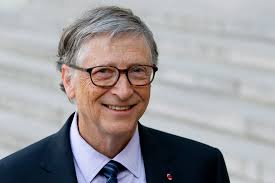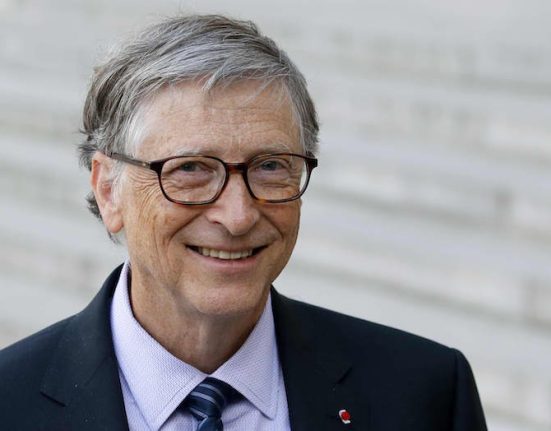Billionaire philanthropist and Microsoft co-founder, Bill Gates, has expressed deep concern over Nigeria’s low health budget, warning that the country’s current public health spending falls significantly short of what is needed to tackle its mounting healthcare crises. Gates, who is currently visiting Africa, made the remarks during a roundtable interaction with a select group of journalists in Lagos on Wednesday.
According to him, Nigeria’s allocation to the health sector does not match the scale and urgency of its challenges, which include one of the world’s highest maternal mortality rates, rampant child malnutrition, periodic disease outbreaks, and weak access to basic healthcare services.
“When you look at the numbers, the amount Nigeria spends on healthcare is very, very small,” Gates noted. “It is not just about percentages; in real terms, the funding is insufficient to meet the health needs of the population.”
The American philanthropist, whose Bill & Melinda Gates Foundation has been operating in Nigeria for more than a decade, underscored that sustained development in any country is largely dependent on the strength of its health systems. He said while Nigeria remains a key focus for the Foundation’s health and development interventions, there is a limit to what international donors can do without the country taking full ownership of its health agenda.
“We can assist as partners, but the foundation of a functioning health system has to be built and maintained by the government. You cannot rely indefinitely on external aid to fund essential health services,” Gates stated.
He also warned that continued overdependence on donor funding for critical programmes, including immunisation, polio eradication, and nutrition, is not sustainable, especially with the shifting global economic landscape and changing geopolitical priorities. He stressed that countries like Nigeria must begin to strengthen internal health financing mechanisms and show stronger domestic commitment.
“In the long run, you can’t depend on aid to fund your essential health systems. Countries need to build resilience internally,” he added.
Gates noted that despite the concerning national outlook, some states in Nigeria have shown commendable commitment, particularly in areas like family planning and routine immunisation. He pointed to Kano and Lagos States as examples of positive movement. However, he cautioned that such isolated progress is not enough to shift national health outcomes or guarantee equitable access to care for millions of Nigerians.
“In states like Kano and Lagos, you are seeing some positive movement. But if you take the country as a whole, the funding just isn’t there yet to achieve universal health coverage or even deliver basic services equitably,” he said.
He further emphasized the need for stronger governance structures, better health system management, and sustained political will to reverse negative trends. Gates maintained that if Nigeria fails to ramp up its investments in health, it risks stalling development gains and undermining the potential of its fast-growing young population.
Bill Gates, who was recently honoured with the national award of Commander of the Federal Republic (CFR) by President Bola Ahmed Tinubu in recognition of his philanthropic contributions, reaffirmed his Foundation’s commitment to Nigeria. He stated that the Gates Foundation will continue to support key areas such as immunisation, nutrition, maternal and child health, polio eradication, and agricultural development.
He concluded by urging Nigerian policymakers at all levels to prioritise health not only as a social service but as a critical pillar of national development, noting that countries that fail to invest adequately in the health of their citizens often struggle to make progress in other sectors.



